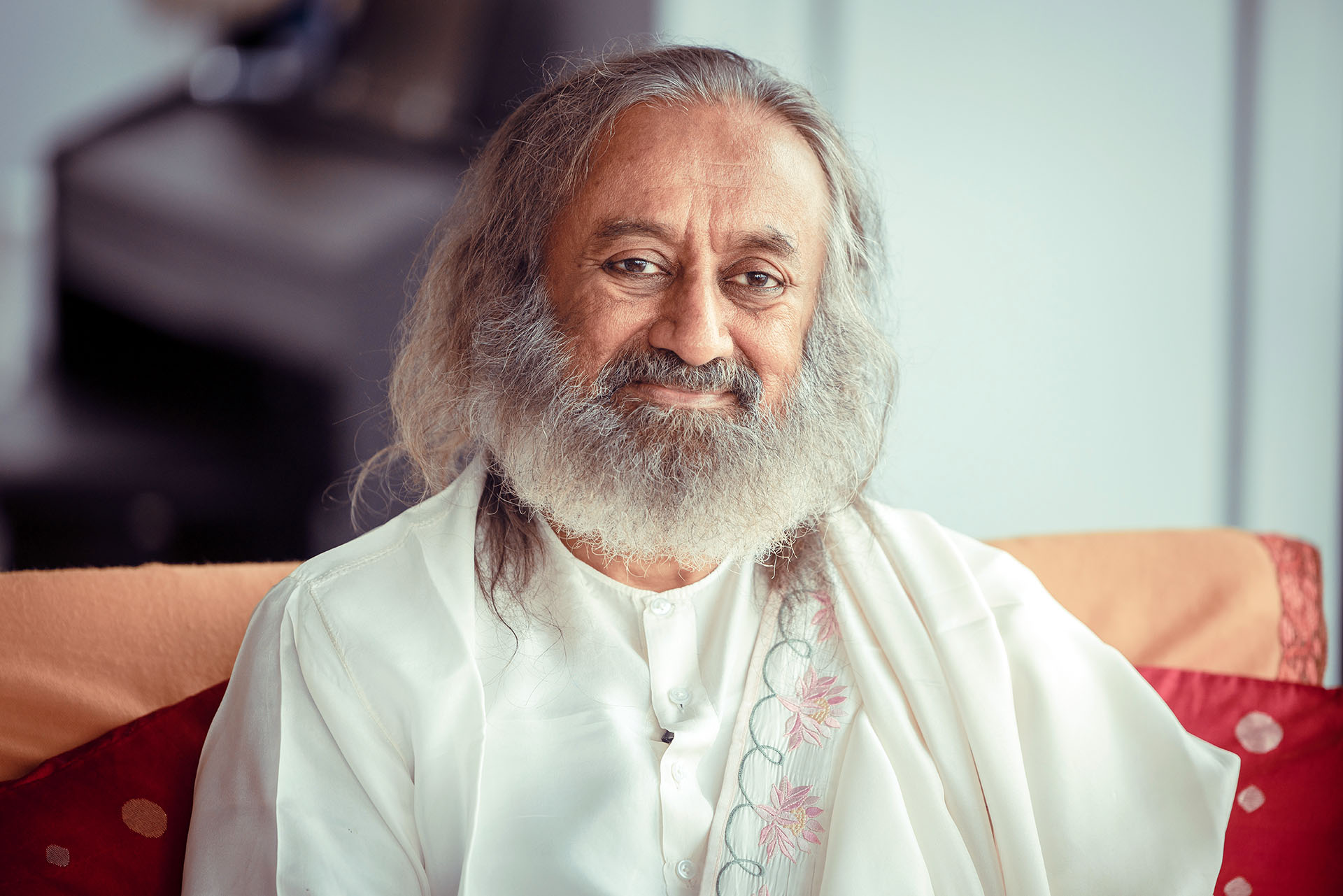Antwort What is the philosophy of Sri Ravi Shankar? Weitere Antworten – What is the philosophy of Sri Sri Ravi Shankar
According to him, the spiritual bond we share as part of the human family is more important than nationality, gender, religion, profession, or other identities that separate us.His work has touched the lives of millions of people around the world, going beyond the barriers of race, nationality, and religion with the message of a “one-world family.” He has shown that inner and outer peace are possible and that a stress-free, violence-free society can be created through service and by …As an ambassador of peace, Gurudev Sri Sri Ravi Shankar plays a key role in conflict resolution and spreads his vision of non-violence at public forums and gatherings worldwide. Regarded as an unbiased figure promoting the sole goal of peace, he represents hope to people in conflict.
What does Sri Sri teach : Through a comprehensive and multidimensional science based education, our school's programs teach about and integrate all paths of yoga including Gyana (wisdom), Karma (service & action), Bhakti (love & devotion), Raj (royal) and Hatha (effort) and more.
What is Ravi Shankar most known for
He played the sitar, an Indian stringed instrument known for its complexity and intoxicating sound, and was considered a supreme master of it.
Why Sri Sri Ravi Shankar is so famous : He was inclined toward spirituality since childhood and started reciting verses from the Bhagwad Gita when he was just four. Maharishi Yogi helped him gain experience and pushed him to become one of the biggest spiritual leaders in India. In 1982, Sri Sri Ravi Shankar established the 'Art of Living' foundation.
Hindu
Shankar was a Hindu, and a devotee of the Hindu god Hanuman. He was also an "ardent devotee" of the Bengali Hindu saint, Sri Anandamayi Ma.
Enlightenment is simply the peeling off layers and becoming hollow and empty. Get to that spot where you feel absolute comfort and absolute freedom. That is liberation, that is nirvana, that is self-realization, that is yoga, and that is unity. You can call it by so many names.
What happens when you get enlightened
Enlightened beings have escaped the cyclic existence, known as samsara, and attained nirvana, where there is no more birth and death and no more suffering. Upon enlightenment, beings escape the three fires, or poisons, of anger, greed, and delusion.Practice mindfulness to help you focus on the present.
- Think about what you're doing right now.
- Describe the environment around you.
- Notice what you're feeling.
- Actively listen to others when they speak.
- Focus on your breath to root yourself in the moment.
One sign of being enlightened is knowing what you are. The uncertainty, confusion about life, about oneself, about who one is, why one is, what one is for, what is going round here – none of that exists in enlightenment. Enlightened one is not lost in reality or confused by reality.
Elements of anger are rooted off at Anagami level. I.e., any forms of anger, disappointment, etc. would be absent at the enlightened people at Anagami and Arahatta levels.
What are the 7 steps to enlightenment : The seven factors are:
- Mindfulness (sati)
- Keen investigation of the dhamma (dhammavicaya)[3]
- Energy (viriya)
- Rapture or happiness (piti)
- Calm (passaddhi)
- Concentration (samadhi)
- Equanimity (upekkha)
How do you know if you are enlightened : One sign of being enlightened is knowing what you are. The uncertainty, confusion about life, about oneself, about who one is, why one is, what one is for, what is going round here – none of that exists in enlightenment. Enlightened one is not lost in reality or confused by reality.
How many lifetimes does it take to reach enlightenment
The Vedas declare that a million lifetimes are needed to achieve enlightenment. Why not then a single lifetime millions of years long That might sense to an engineer, but God planned it differently! Murali Venkatrao's entertaining & enlightening talk explains why.
Vajrayana Buddhism also recognizes many female yogini practitioners as achieving the full enlightenment of a Buddha, Miranda Shaw as an example cites sources referring to "Among the students of the adept Naropa, reportedly two hundred men and one thousand women attained complete enlightenment".While some enlightened individuals may find solace in solitude and contemplation, others may continue to seek and cherish meaningful connections with others. Ultimately, the experience of loneliness is not determined solely by one's level of enlightenment, but by a combination of internal and external factors.
Do enlightened people get sad : Dr. Martin found that most enlightened people have a full emotional range. While self-transcendence does bring about positive emotions such as joy and peace, that's not the full story. Many enlightened people still feel strong negative emotions, such as anger when they're cut up in traffic.








